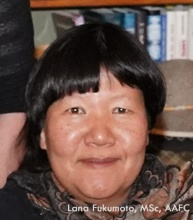Research reveals raspberries could support health and help diabetes
Beneficial compounds are discovered in fruit cell walls.

Could we consider the unassuming raspberry a superfood? When Dr. Kelly Ross took a closer look at raspberries, she found evidence of their potential to enhance human health and benefit diabetics. Dr. Ross and her team, David Godfrey and Lana Fukumoto, were pursuing an emerging line of research that looks at polysaccharides, a group of carbohydrates, found in cell walls inside fruit. These compounds were previously believed to be indigestible by humans, so were largely ignored in assessments of the health benefits of fruit. As we learned in my last blog (Health benefits of fruits and vegetables discovered ‘locked’ to plant cell walls), these compounds are often beneficial for our health.
Dr. Ross and her team found polysaccharides present in cell walls of raspberries that may provide health benefits and specifically help those who suffer from diabetes.
Natural food sources of these compounds are highly sought after. It’s exciting to discover them in a popular berry that is not only commercially available, but can also be grown in most Canadians’ backyards. – Dr. Ross
How could raspberries enhance health?
The research revealed many of the raspberry cell wall polysaccharides contained high levels of phenolics. Phenolics are compounds known to impart significant health benefits when ingested, including reducing harmful inflammation caused by arthritis, improving heart health, and providing cancer fighting properties. High levels of phenolics in raspberry cell walls contributed to the highest levels of antioxidant activity in all the fruit the team tested, including cherries and ginseng berries.
“One of the exciting aspects of finding these compounds attached to raspberry cell walls,” Dr. Ross explains, “is that they are present after passing through the stomach, thereby potentially providing protective effects at the molecular level for our gastrointestinal tract and possibly reducing the risk of cancer of the intestine and colon.”
How could raspberries help control diabetes?
The team also discovered that raspberry cell wall polysaccharides act as alpha-amylase inhibitors and alpha-glucosidase inhibitors. This is good news for diabetics because these inhibitors moderate the increase of blood sugar after a meal. Alpha-amylase inhibitors reduce blood sugar by slowing down starch digestion of food, while alpha-glucosidase inhibitors stop complex sugars from degrading into simple sugars. The two inhibitors work together to keep blood sugar from spiking.
Adding these inhibitors to a diet can help control type 2 diabetes. “Natural food sources of these compounds are highly sought after,” claims Dr. Ross. “It’s exciting to discover them in a popular berry that is not only commercially available, but can also be grown in most Canadians’ backyards.”
So, the next time you’re looking for a snack that may reduce inflammation, help your heart, fight cancer and moderate your blood sugar, consider reaching for a handful of raspberries. Whether or not it’s considered a superfood, the unassuming raspberry has certainly earned its place in a healthy diet.
Where can we learn more?
Kelly A. Ross, David Godfrey, Lana Fukumoto (2015). Purification and Characterization of Water Soluble Polysaccharides from Sweet Cherries, Raspberries, and Ginseng: Chemical Composition and Bioactivity, Research in Health and Nutrition (RHN), Volume 3, 1-13.
Kelly Ross, Yaw Siow, Dan Brown, Cara Isaak, Lana Fukumoto & David Godfrey (2015) Characterization of Water Extractable Crude Polysaccharides from Cherry, Raspberry, and Ginseng Berry Fruits: Chemical Composition and Bioactivity, International Journal of Food Properties, 18:3, 670-689, DOI: 10.1080/10942912.2013.837066.
To link to this article: https://doi.org/10.1080/10942912.2013.837066
Meet Dr. Ross: https://profils-profiles.science.gc.ca/en/profile/dr-kelly-ross
By: Naomi DeLury

